Range Rover shows what in-car surround sound should be like
Hands on with the Evoque's awesome 825-watt optional surround sound system from Meridian
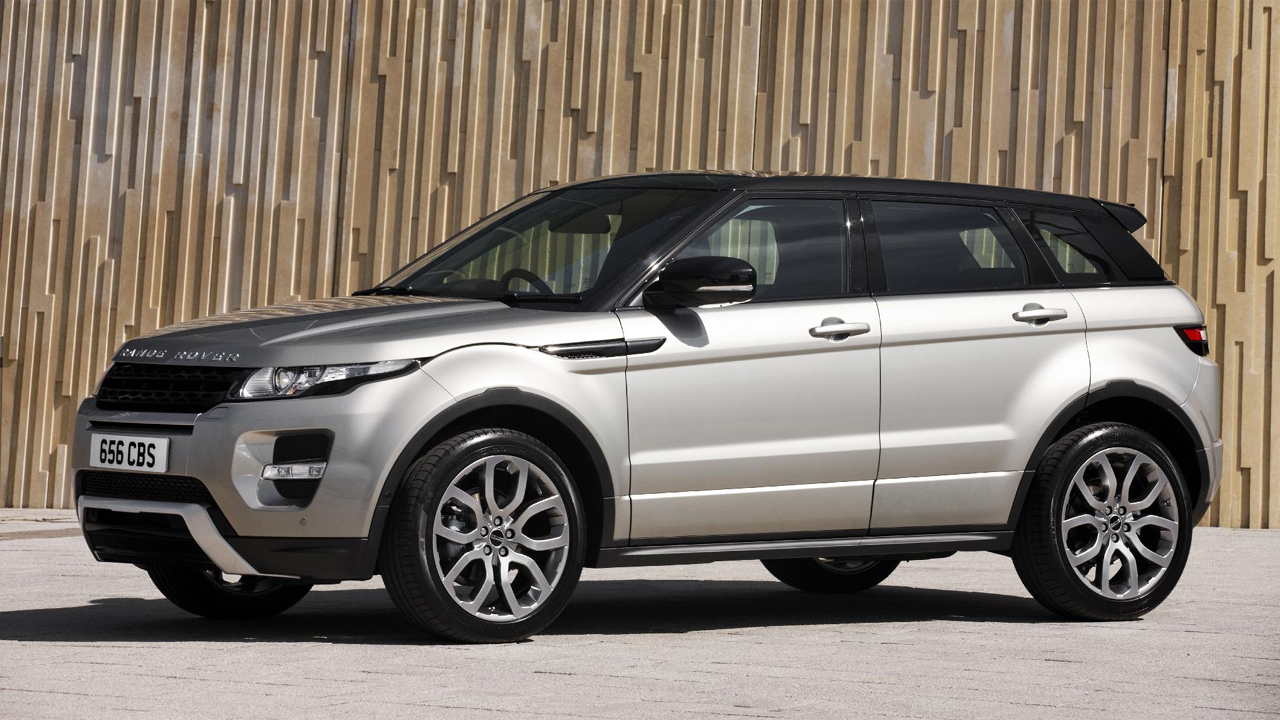
A week with Range Rover's preposterously popular Evoque has been an intriguing learning curve for TechRadar. What we didn't expect, however, was comprehensive answers to questions about audio technology we hadn't even been asking.
Questions such as, is digital sound processing a gimmick or a source of sonic revelation? And, are all in-car sound systems an anathema to serious audiophiles?
Before we come to the answers, let's kick off with a little background to this supersonic 4x4, a Range Rover Evoque equipped with an optional sound system.
It's a British affair
Partnerships between premium automotive brands and luxury audio outfits are pretty much par for the course these days. The latest marriage of aspirational equals involves Land Rover and UK audio specialist Meridian.
It makes for an intriguing all-British affair, at least in terms of branding. Land Rover is actually owned by Tata, an Indian industrial conglomerate that also rules what was once British Steel. But the vibe is still boisterously British.
Meridian, meanwhile, is the real UK-based deal with its head office and manufacturing facilities – right down to printed circuit boards – in Huntingdon. Anyway, it's a nice alternative to the likes of Audi and Bang & Olufsen or Lexus and Mark Levinson.
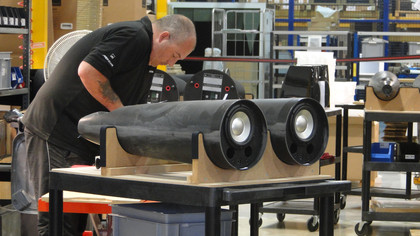
Upgrades
The kit fitted to our Evoque is the Meridian Surround Sound System, not to be confused with the stereo Meridian Sound System that comes standard with the Evoque.
Sign up for breaking news, reviews, opinion, top tech deals, and more.
Headline differences include an upgrade from 11 to 17 speakers and 380 watts to 825 watts. But as Meridian's car audio guru Graham Landick explains, the changes are as much about quality as quantity.
At the core of all this is a concept known as psychoacoustics, the science of how we hear sounds. "Partly, that's to do with small details and cues in music, like a closely-miced vocal revealing the breaking of the singer's lips," says Landick.
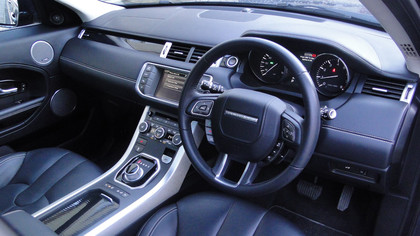
But it's also about managing the sound stage. Where do the different elements of the audio track seem like they're coming from to the listener?
The latter is a particular problem in cars due to the relatively confined space and the fact that listeners can be positioned throughout the cabin. How do you ensure the passenger in the rear gets the same great sound experience as the driver, for instance?
Trifield technology
The answer, according to Meridian, is Trifield, a combination of advanced sound processing and strategically positioned speakers.
"With Trifield", says Landick, "we take two channel audio and re-render that for truly holographic surround sound."
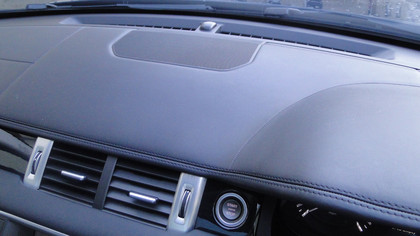
A key component here is the centre channel speaker, something that originally sprang out of Meridian's home-theatre technology.
"With normal two-channel stereo audio you're effectively hearing a phantom centre channel. If you put a real speaker there, it does two things. First, it provides a fundamental point source. The other thing is that you get a consistent sound source regardless of where you are sitting."
Super sonics
In other words, in a normal stereo-driven car without a centre speaker, the sound stage tends to be dominated by the speakers you're sitting closest to. In the Meridian powered Evoque, you get that concert hall experience, a true sound stage.
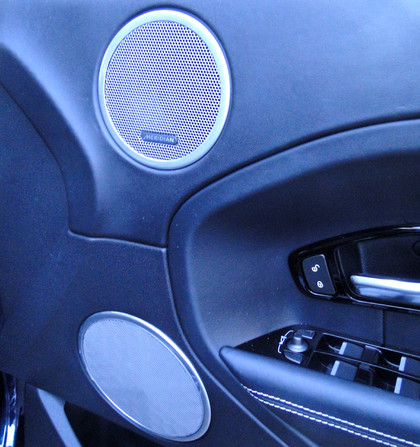
That's the theory, anyway, so what about the reality?
When it comes to many things TechRadar tests, the harsh truth is often that there's no substitute for underlying ability. So screens with dynamic contrast or colour dithering but cheap LCD panels are no match for a quality alternative with little to no fancy processing.
But that's not the case here. Handily, it's possible to not only switch Meridian's Trifield tech on and off; you can also jump to alternative surround processing options, including Dolby PLIIx and DTS Neo:6.
Superior sound
And the Meridian setting is, tangibly, clearly superior. The biggest differences are clarity and accuracy. With Trifield enabled, the separation and position of the different elements of a given sound track are much more apparent.
For instance, the singer may be located really clearly at the centre of the sound stage while various instruments call out across the car. It's very dramatic, very atmospheric.
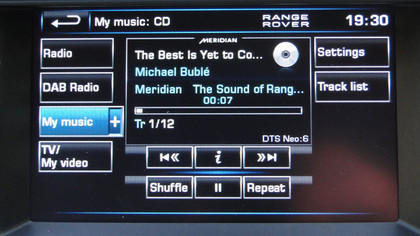
By comparison, the system sounds awfully flat in plain stereo mode. The other surround settings do close the gap a little. But neither has the same sense of expansiveness or accuracy.
As it happens, it's a very powerful system, so it does plain old kidney-pummelling sonic power, too. Put the two together and you have a car audio platform that's comfortable on the ears at volume levels that would rapidly become tiring from lesser equipment.
The price of luxury
Overall, the Meridian Surround Sound System adds a welcome twist of genuine luxury that suits the Evoque perfectly. So, are there any downsides - apart from the £995 upgrade cost, of course?
The only major issue involves sound sources. You do need fairly high-quality sources to get the best out of the Meridian Surround Sound System.
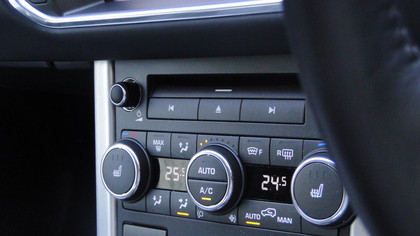
Specifically, we're talking about the bit rate of your digital music library. Anything less than 192kbps in terms of MP3 recordings, for instance, and the shortfall in clarity and drama is tangible. The system simply can't separate out the individual elements from the muddy, compressed signal.
In that context, we've two words of advice. Firstly, don't go near the Meridian-powered Evoque if you're not sure about the quality of your MP3 collection. It might leave you wishing it was all recorded in a higher bit rate.
Secondly, if you do give it a go, make sure you try it with a quality sound source. If in doubt, use a CD. Take it from us. You'll be impressed.
Technology and cars. Increasingly the twain shall meet. Which is handy, because Jeremy (Twitter) is addicted to both. Long-time tech journalist, former editor of iCar magazine and incumbent car guru for T3 magazine, Jeremy reckons in-car technology is about to go thermonuclear. No, not exploding cars. That would be silly. And dangerous. But rather an explosive period of unprecedented innovation. Enjoy the ride.